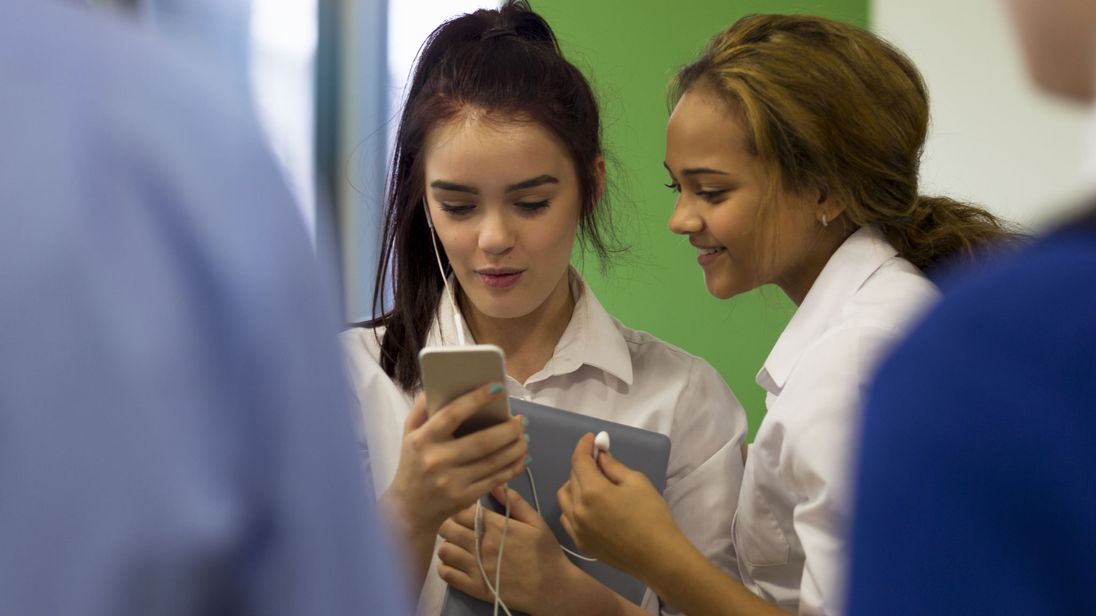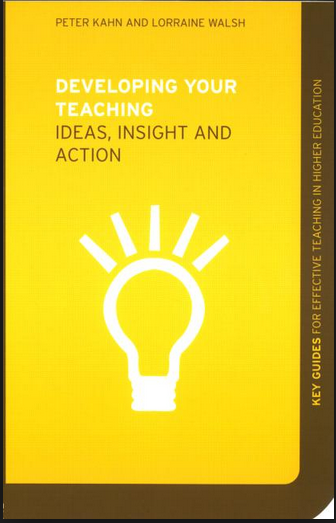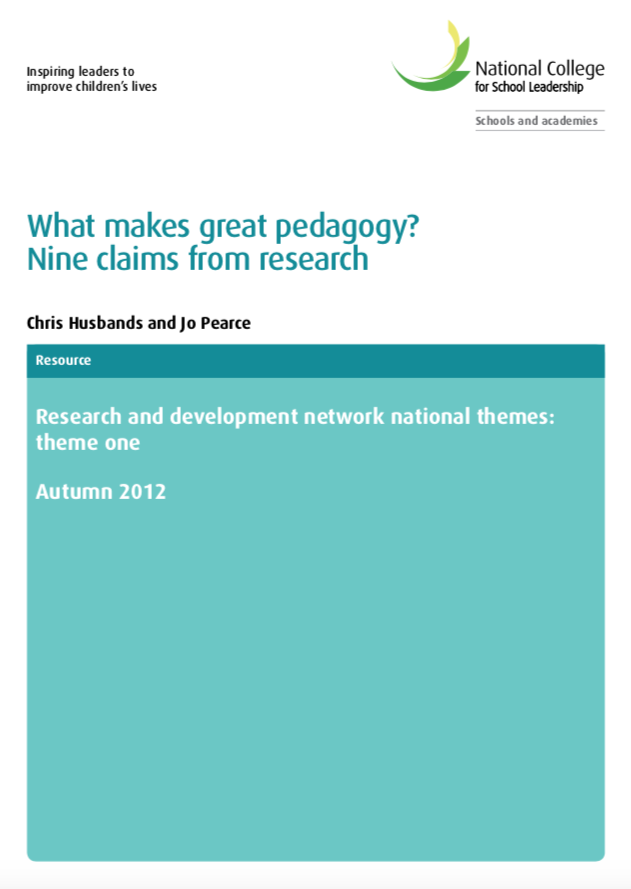|
I use phones and ILT in my teaching a lot - but this article from Sky News talks about banning mobile phones in school all together. And interestingly, in a poll on the Sky News website this morning, 80% of respondents have suggested that mobile phones should be banned from schools all together. The culture secretary misrepresents the findings of a 2015 study when he says that results are impacted by students even just having phones in bags *how cold that be - it is nonsense!) The 2015 study (available here...cep.lse.ac.uk/pubs/download/dp1350.pdf) suggests... By exploiting differences in implementation dates, our results indicate that there is an improvement in student performance of 6.41% of a standard deviation in schools that have introduced a mobile phone ban. The existing literature on the impact of technology in the classroom implies that the unstructured presence of technology has ambiguous impacts on student achievement. We add to this by illustrating that a highly multipurpose technology, such as mobile phones, can have a negative impact on productivity through distraction. Schools that restrict access to mobile phones subsequently experience an improvement in test scores. However, these findings do not discount the possibility that mobile phones could be a useful learning tool if their use is properly structured. Our findings suggest that the presence of mobile phones in schools should not be ignored. Finally, we find that mobile phone bans have very different effects on different types of students. Banning mobile phones improves outcomes for the low-achieving students (14.23% of a standard deviation) the most and has no significant impact on high achievers. The results suggest that low-achieving students are more likely to be distracted by the presence of mobile phones, while high achievers can focus in the classroom regardless of whether phones are present. Given heterogeneous results, banning mobile phones could be a low-cost way for schools to reduce educational inequality. So what is interesting here is two things; firstly, the structured and considered use of mobile phones in scjools can be useful - and with the increase in interactive technologies, that's no surprise. And secondly, and worryingly - there is a difference in the effects that phones have on different kinds of pupils. Banning mobiles has most efect on low achieving students, and less of an effect on higher achieving students. I think this needs more investigation - this is a research project that I am really interested in. The Sky news article is below.... 
Culture secretary Matt Hancock says schools should ban mobile phonesNot content with barring them from the classroom, Matt Hancock suggests they be confiscated from children at the start of the day. Children should be banned from using their mobile phones at school, the culture secretary has said. Not content with merely barring them from being used in the classroom, Matt Hancock has suggested that they be confiscated from children who carry them at the start of each school day. Writing in The Daily Telegraph, he warned that mobiles could have a "real impact" on students' achievements and leave them exposed to increased amounts of bullying. He also questioned why youngsters needed to bring their phones to school in the first place. "There are a number of schools across the country that simply don't allow them," he said. "While it is up to individual schools to decide rather than government, I admire head teachers who do not allow mobiles to be used during the school day. I encourage more schools to follow their lead." Mr Hancock said that "setting boundaries" in relation to how much children were exposed to technology - and notably social media - was vital in protecting them from harm and encouraging them to use the internet safely. "Studies have shown that mobile phones can have a real impact on working memory and fluid intelligence, even if the phone is on a table or in a bag," he added. His column was supported by a letter from seven fellow Tory MPs, also published in the newspaper. Citing a 2015 study by the London School of Economics, they write: "Where schools banned smartphones from the premises, or required them to be handed in at the start of the day, pupils' chances of getting five good GCSEs increased by an average of 2%. "The improvement was even more marked for lower-achieving pupils. Results among pupils in the bottom quarter of achievement improved twice as much as the average."
https://news.sky.com/story/culture-secretary-matt-hancock-says-schools-should-ban-mobile-phones-11410459
4 Comments
 I've just had a case study accepted for the second edition of Peter Kahn and Lorraine Walsh's book on 'Developing your teaching'. I'm really pleased! I wrote it about reflective practice, and how I use Brookfield's lenses and reflective journals in my own work. It reflects my approach to teaching social justice. But in writing it, and in correspondence with Lorraine about my work, I realised that I don't give enough time to thinking about how I reflect; at least not in terms if pedagogy- should the reflection 'match' or be linked to the pedagogy or subject matter. And I also haven't formalized the ideas about how I decide which teaching methods I use in which sessions, and why. So then I started to think about how you could deconstruct pedagogy - what are the features (possibly, what are the outcomes) of effective pedagogy? The Center for Research on Education, Diversity and Excellence at the University of California talks about these being key aspects: joint productive activity; language development; contextualization; challenging activities; and Instructional Conversation (IC). https://www.tolerance.org/professional-development/five-standards-of-effective-pedagogy In 2012 Chris Husbands and Jo Pearce wrote a booklet for the National College; What makes great pedagogy? Nine claims from research. They conclude: This review has set out nine claims about what makes for great pedagogic practices drawing on a range of research evidence. The evidence which has been reviewed suggests that outstanding pedagogy is far from straightforward. Classrooms are complex, multi-faceted and demanding places in which to work and successful pedagogies are correspondingly sophisticated. Highly successful pedagogies develop when teachers make outstanding use of their understanding of the research and knowledge-base for teaching in order to support high-quality planning and practice. The very best teaching arises when this research base is supplemented by a personal passion for what is to be taught and for the aspirations of learners. There is a robust evidence base which helps to identify the ingredients of outstanding pedagogic practices. However, truly effective practices depend on teachers making active connections between the ideas from research. The most effective successful classroom practices work these ideas together in systematic and sophisticated ways, and the best teachers are active in building relationships between them. Understanding the ways in which these relationships are built – what Leahy et al (2005) have called ‘minute-by-minute classroom practices’ – is itself a fruitful area for both further research and improving practice. And so, this took me back to reflection - in and on practice (Schön). The minute by minute decisions and actions are things that over my years in practice have often saved me; and sometimes let me down big style. So really, the values of experience, and of implicit learning, cannot be overstated. The complex interactions in the classroom, and the way we work, which changes even as we are working, are key in our practice. So what? Well, so this blog, which is just my reflections - is a really useful one; I'm glad I've kept it up - the joint thinking and writing are key to my developing practice. |
About me...
I was a psychology and social sciences teacher for many years and now I am in the throes of a leadership, teaching and research career in HE. I care passionately about education. This blog will show you why and how.
Categories
All
Archives
March 2023
|


 RSS Feed
RSS Feed